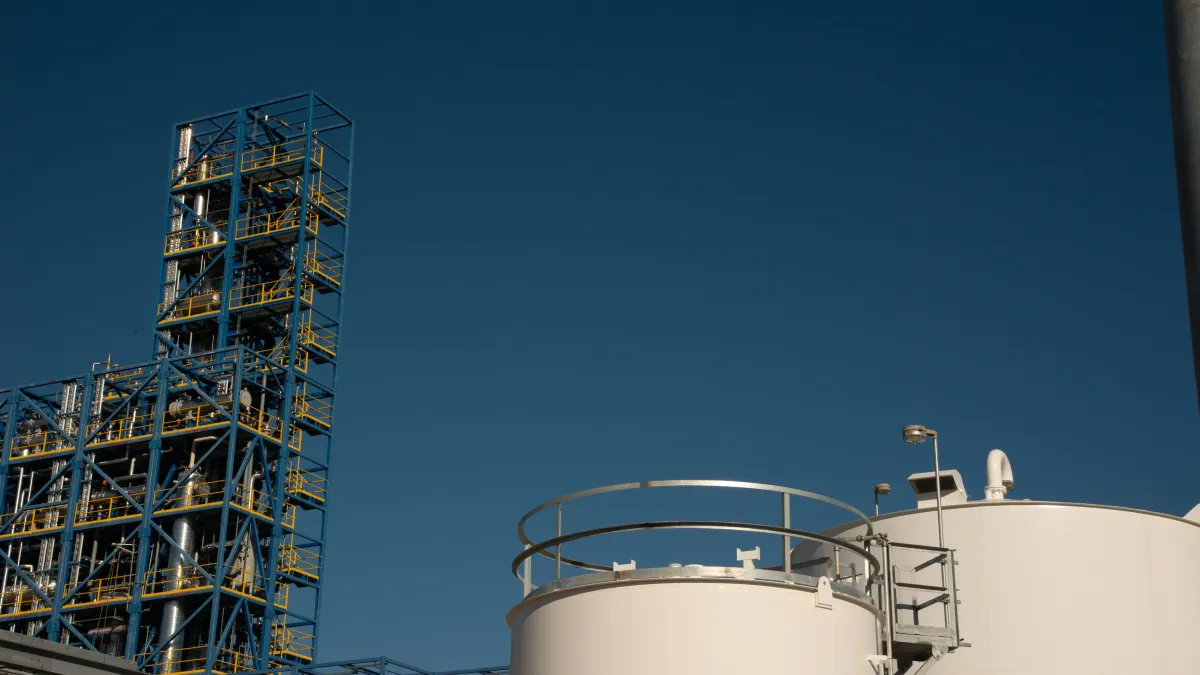Dive Brief:
- The world's first plant producing “sustainable aviation fuel” from corn and other agricultural feedstocks opened, highlighting potential new markets for farmers as biofuel infrastructure expands.
- Illinois-based LanzaJet on Wednesday unveiled its ethanol-to-sustainable aviation fuel production facility capable of producing 10 million gallons of SAF and “renewable diesel” per year.
- The plant in Soperton, Georgia, will use ethanol made from agricultural waste, MSW, corn and other so-called "energy crops." In a statement, LanzaJet Board Director Jennifer Holmgren called the opening "a significant decarbonization milestone in the world."
Dive Insight:
The need to decarbonize the airline industry could bring new opportunities for U.S. corn growers, especially as ample supply is causing prices to flatline.
Biofuel producers have struggled in recent years, partly as the rise of electric vehicles shrinks market share. But with low-carbon fuel gaining traction in heavy industries where electrification is impracticable, ethanol producers are poised for a boost.
"As we transition to SAF, this will not only create new climate-smart commodity markets for American producers, but it will also help American companies such as LanzaJet corner the market of a valuable, emerging industry," U.S. Agriculture Secretary Tom Vilsack said in a statement.
As of now, few farmers will be able to take advantage of the opportunity with SAF, however, due to a lack of proper refining capacity. Only one plant in the U.S. can create the low-carbon ethanol needed to produce SAF, according to the Iowa Corn Growers Association.
“LanzaJet is proving that SAF from ethanol is here today. Now it is up to us to produce a qualifying ethanol feedstock," Monte Shaw, Iowa Renewable Fuels Association executive director, said in a statement.
Interested in more agriculture news? Sign up for Agriculture Dive’s newsletter today.












